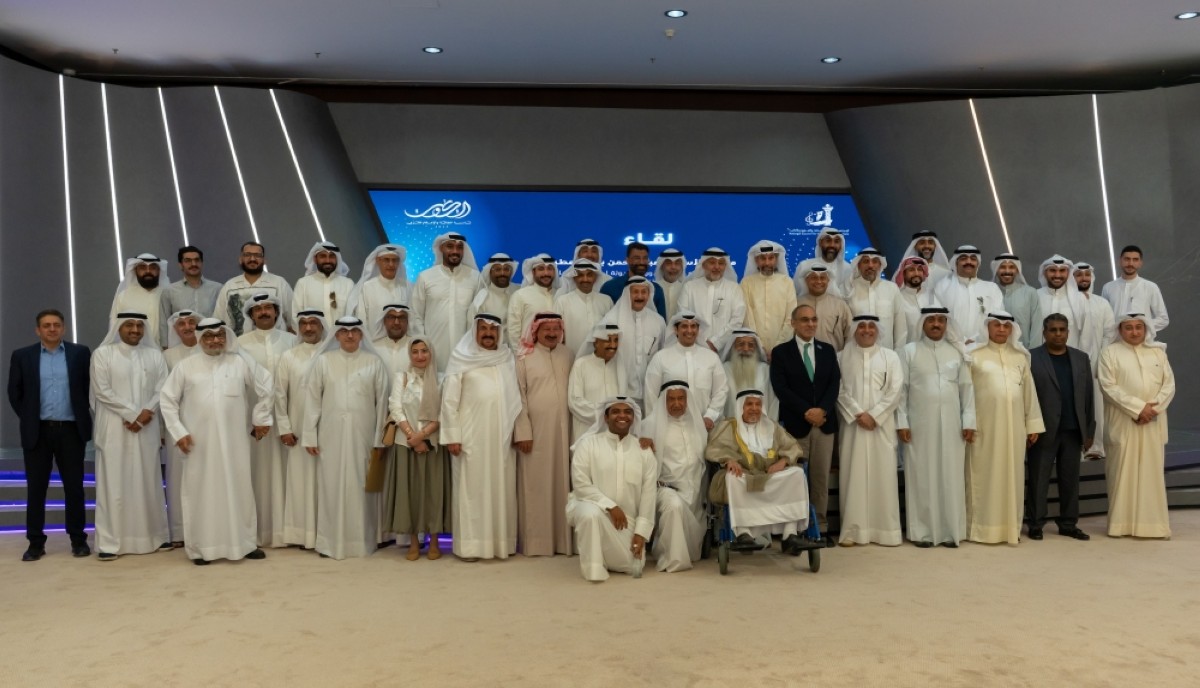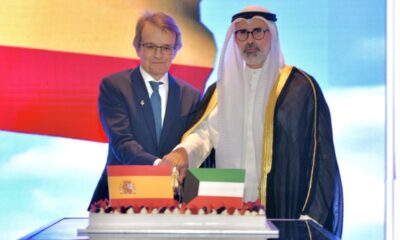KUWAIT: Minister of Information and Culture and Minister of State for Youth Affairs Abdulrahman Al-Mutairi underscored the importance of advancing theatrical work in Kuwait during a coordination meeting with representatives of theatrical production companies, civil theater associations, and cultural institutions. The meeting, held at the Government Communication Center, focused on strengthening partnerships to enhance the role of theater in Kuwait’s cultural landscape.
At the outset, Minister Al-Mutairi affirmed the unwavering support that the culture sector receives from the political leadership, noting the rich history of Kuwaiti theater, which this year marks more than a century since its inception. He paid tribute to the pioneers of Kuwaiti theater whose efforts elevated it into a distinguished Arab and international platform, stressing the role of the younger generation in continuing this legacy. “Theater today is not only a cultural expression but a key driver of development, contributing to the economy, boosting tourism, and evolving into a professional industry,” the minister said.
KUWAIT: Minister of Information and Culture and Minister of State for Youth Affairs Abdulrahman Al-Mutairi and Acting Assistant Secretary-General for the Arts Sector are pictured during the event. – KUNA photos
Al-Mutairi called for closer cooperation among the public and private sectors, as well as civil society organizations, to enhance the effectiveness and influence of theatrical productions. He emphasized that the National Council for Culture, Arts and Letters (NCCAL) plays a central role in supporting, sponsoring, and organizing the cultural scene, noting, “We operate from a national participatory strategy that values theater, and we welcome all visions and proposals for a brighter future.” He also stressed the significance of public engagement and constructive criticism in evaluating the success of performances, highlighting the importance of content that aligns with religious and social values, while also addressing development-related themes that speak to the nation’s future.
As part of efforts to modernize and expand theater infrastructure, Minister Al-Mutairi revealed that the Council has launched a study to offer several theaters — including Kaifan, Al-Shamiya, Salmiya, and Mishref — for public auction, following the recent auctioning of Dasma Theater for sustainable operation. He further announced coordination with the Ministry of Education to allocate one theater in each governorate from select school venues, with the aim of fostering theatrical activity across all regions of the country.
“Kuwaiti theater stands at a historic crossroads,” Al-Mutairi said, “with a genuine opportunity to usher in a new era of excellence, backed by the leadership’s continuous support and the collaborative efforts of all cultural stakeholders.” The meeting also featured remarks and feedback from attendees, in the presence of NCCAL Secretary-General Dr Mohammed Al-Jassar and Acting Assistant Secretary-General for the Arts Sector Aisha Al-Mahmoud. — KUNA


















